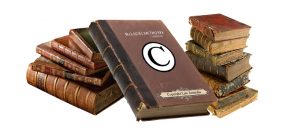
Copyright basics
The Copyright Act 1968 is now in its 50th year of operation, yet there is still misinformation regarding copyright protection and when breaches may occur. This article provides some basic information regarding copyright protection.
Is there a registration process?
The most commonly asked question about Copyright is “Do I have to register my creations in order for it to be protected?”
The short answer is, no.
Copyright subsists at the time of publication.
There are no formalities for subsistence of copyright under the Copyright Act.
There is no registration system nor is there a need to assert copyright in your publication (for example by including the © logo).
Are my works protected?
Copyright protects two types of creations, namely:
- Works; and
- Subject-matter other than works.
“Works” includes artistic, literary, dramatic or musical works – this includes sculptures, drawings, photographs, books, journal articles, lyrics, computer programs, musical compositions.
“Subject-matter other than works” includes films, sound recordings, broadcast.
In order for copyright to subsist:
- it must be original; and
- there must be a connection with Australian Law.
Originality requires that the literary work in question originated with the author and that it was not merely copied from another work.
To have a connection with Australian Law, either the first publication must take place in Australia or the author was an Australia citizen or a permanent resident in Australia at the time when the work was first published.
What protection do I get?
Copyright, in relation to a work, is the exclusive right to, among other things, to reproduce the work in a material form, to publish the work, to communicate the work to the public (s31 Copyright Act).
So, if a third party, without your permission, breaches any of your exclusive rights – you may have a claim against them for a breach of copyright.
How long does the copyright last?
The general rule is that copyright lasts for the life of the author, plus 70 years.
The 10% rule
The theory that you won’t be in breach of someone else’s copyright if you change at least 10% of the work is a misconception.
A breach of copyright will occur if you use a “substantial part” of someone else’s material.
Whether the material used is a “substantial part” is not a question of quantity, but quality. If the part used is an “important”, “essential”, or “distinctive” part of the original material, it is a substantial part.
In addition, while the part of the work which is reproduced must be a substantial part of the original copyright work, it need not form a substantial part of the “infringing” work.
The same applies if you intend to paraphrase someone else’s work. If the section you have used is a “substantial part” as set out above, then you will need to get permission or rely on a copyright exception, or risk a breach of copyright claim against you.
It’s available on the internet
Material published on the internet is not always free to use.
Copyright law applies to works published on the internet, the same way as “offline” material.
Always check the terms and conditions for the use of any online material. If it is not clear that the material is free to be used and distributed, it is best not to use the material, without first obtaining permission.
Practical notes
It is not uncommon for businesses to outsource publications used as part of their businesses (such as product manuals, product descriptions used on product packaging, content on their website or social media pages) to third party contractors.
It is important to have control over the material developed and published by third parties on your behalf, to avoid being in a position where you have unknowingly breached someone else’s copyright.
Businesses and corporations should also ensure that they have ownership of any intellectual property (including copyright) in any work developed for them by employees and third party contractors. The best way to do so is to have an agreement in writing governing the ownership of the intellectual property.
How we can help
The above provides general information regarding copyright only.
If you have a copyright or intellectual property related enquiry and require advice tailored to your particular circumstances, please contact Juliana Ng on jng@mtpartners.com.au
Juliana is experienced in intellectual property matters including domain name disputes, trade mark registration applications, trade mark infringement related issues and misleading or deceptive conduct and passing off claims.
Juliana holds a Master of Laws from the University of New South Wales, specialising in Innovation Law (IP) and Media and Technology Law.
Disclaimer:
This article is intended to provide general information only, and is not to be regarded as legal advice. Formal legal advice should be sought in relation to particular transactions or circumstances.

